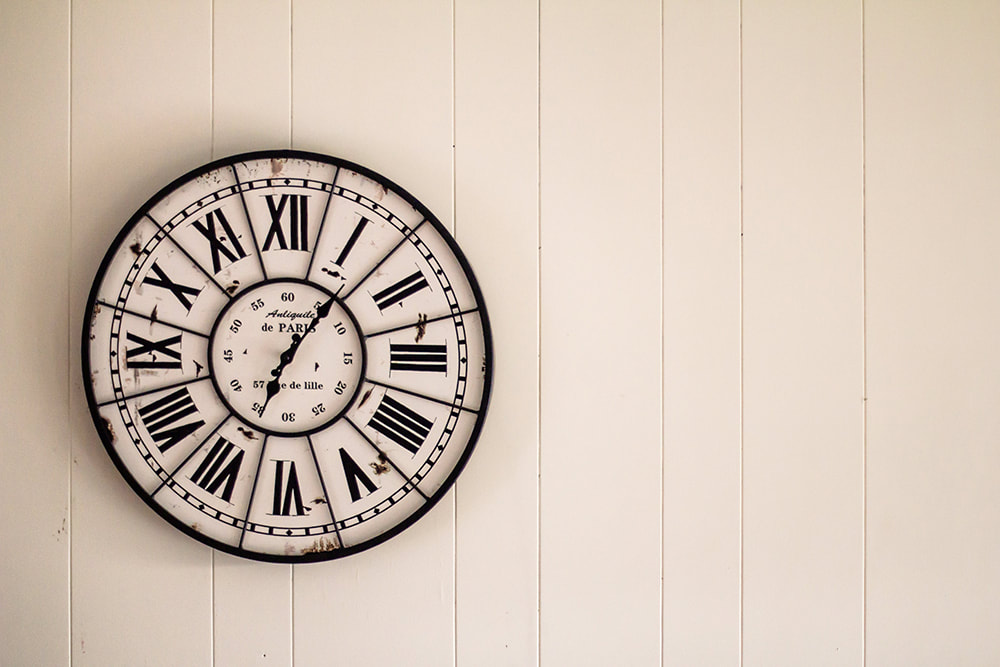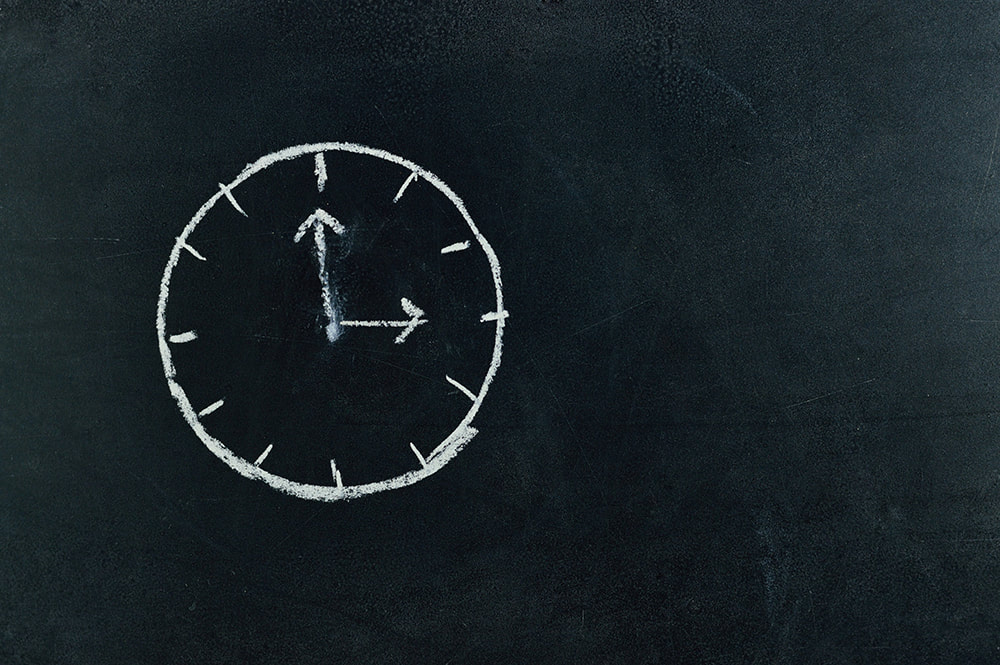And then, not too many decades later, it was my turn. I was a primary-school teacher, and I had to teach children to cope with clocks. I found out early on, it’s not an easy task. I worked out steps of progression that would bypass the worst sticking-points, learned how to rephrase the most confusing questions. Inwardly I raged at the textbooks and test-papers that posed the wrong questions. In one national test, 7-year-olds were asked, “What time is it when the short hand points to 12 and the long hand points to 3?” I had just been teaching my class that the long hand DOES NOT POINT to the 3 or any number: on a real clock, like the one you can see up there on the wall, the long hand ignores all numbers and points to one of those 60 minute-markers at the edge of the clock. It’s only in the maths textbook that for some utterly inexplicable reason they draw both hands short enough that you’d think they were both laying claim to the numbers. With class after class over the years, I worked harder and harder to teach clocks… but with poorer and poorer results. It’s not just the shrinking attention-spans. It’s not just the overcrowding of the curriculum, the constant adding of new content that effectively shortens learning times. It’s not just that pathological lack of curiosity engendered by too much screen-time and a paucity of real-life experiences. It’s about whether circular clock-faces really are a genuine part of life experience any more. Last year it was a class of 11-year-olds in Scotland. They had met clocks in school before, and most of them could already read the hours and (to a fair level of accuracy) the half-pasts. Obviously they would have been taught further than this in previous years, but retention wasn’t happening, and each year was a case of re-learning before any progression could be made. Yes, there were a few children who could confidently tell the difference between quarter to 3 and quarter past 9—but only a few. These were either the children who had a natural flair for all things mathematical/logical, or the children whose families still had real clocks on the walls at home. How, I wondered, can I get children interested in learning to read a clock face if they only ever see a clock face in school? How are they going to perceive a real-life relevance in their learning if they don’t actually encounter any clocks in real life? The time on your Smartphone is digital. The TV listings are digital. The bus and train timetables display times in digital form. I’ve begun to wonder why we still require every child to know how to use mechanical clocks as though it’s a necessary part of life in the 21st century. I’m not saying we should ban them, or forget our historical relationship with the 12-hour ticktocker. I think learning ABOUT analogue clocks could be a special-interest thing, a sort of challenge for the mathematically curious inside of a history topic—left open as something you can learn later on if you actually want to, but not as a requirement. A bit like Roman numerals. If we forced every child to do sums in Roman numbers, 90% of children would get discouraged, but we show simple Roman numerals within history projects and many children enjoy playing with them. People start getting angry when I say this. We still have clocks in workplaces! they insist. We shouldn’t dumb down the curriculum!
It’s true that we still have clocks in workplaces… but in most workplaces you’ll be looking at the corner of your computer screen when you want to know the time, because it’s more accurate. Perhaps there are work areas that would need to replace cheap analogue clocks with even cheaper digital timepieces. I can’t see this as a tragedy. To me, the tragedy is that children learn early on in school that maths means a fruitless grappling with quarter-pasts and quarter-tos. As for dumbing down the curriculum… well, that’s maybe a yes, at least in the sense of removing just a little of its content. It’s not just the 3 Rs any more, you know. We’re required to teach toileting, nonviolent social interaction, life skills, healthy eating, personal wellbeing, sustainability, safe use of IT… and everything else children aren’t learning at home. Surely it’s only reasonable to consider what could safely be dropped from an overburdened schedule of teaching and learning? If analogue clocks aren’t urgent, couldn’t they be left for later, and left to personal choice? I don’t like change any more than you do. I love antique clocks and I enjoy the mechanical wonder of their invisible cogs and the sound of their wooden/metallic chiming. I’ll be one of the people who still keep an analogue clock on the shelf. Clocks mean something to me. I just don’t think there’s any justification for dragging every last reluctant child through the process of learning and relearning something that means nothing to them.
6 Comments
Some really heart felt points here!
Reply
Fiona M Jones
16/1/2024 12:45:34 am
I'd certainly admit that analogue clocks are in a grey area: they are still present in many contexts, so nobody can say they're entirely redundant. For this reason I'd like to see clocks presented in topic work other than maths.
Reply
16/1/2024 04:18:34 am
Thanks for a thought provoking essay and pros and cons of each. Mankind is evolving as we always have and your Roman numeral example is spot on. I don’t remember struggling g with clock learning as a child but, as you pointed out, there were clocks everywhere.
Reply
Fiona M Jones
16/1/2024 04:29:57 am
Of course not everyone struggles. My first son at age 5 listened to me talking about clocks for a few minutes, sat staring up at the clock on the wall for a while, and then the next week I discovered that he could tell the time. But he's in a minority (he's currently taking a PhD in maths)...
Reply
Fiona M Jones
16/1/2024 08:37:23 pm
Of course, when it's me, there is no measuring of ingredients or working out how to use the oven timer...
Reply
Leave a Reply. |
AuthorFiona M Jones is a creative writer living in Scotland. Her short fiction, CNF, poetry and educational content is published all over the world, and one of her stories gained a star rating in Tangent Online's "Recommended Reading" list for 2020. You can follow Fiona's work through @FiiJ20 on Facebook and Twitter. Archives
June 2024
Categories
All
|






 RSS Feed
RSS Feed
